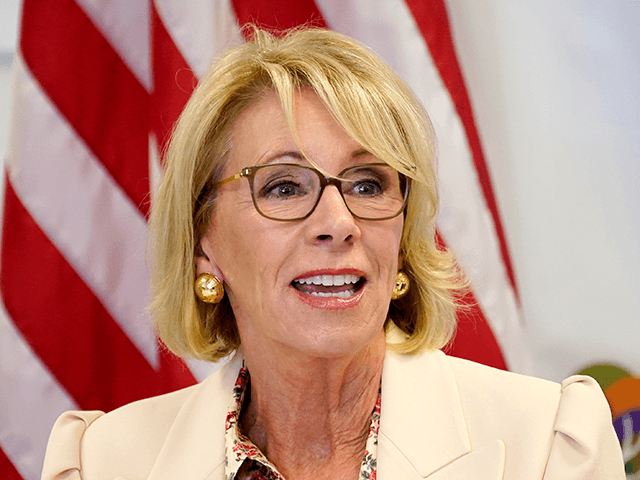U.S. Secretary of Education Betsy DeVos announced this week an extension for the delay on payments for student loans and interest accrual until January 31, 2021 — one month longer than the December 31 extension in President Donald Trump’s August 8 memorandum on emergency federals student loan relief.
“Federal student loan borrowers will not be expected to make payments through January of next year, though they will continue to be able to do so and benefit from the zero percent interest rate as they pay down principal,” the announcement said. “Non-payments will continue to count toward the number of payments required under an income-driven repayment plan, a loan rehabilitation agreement, or the Public Service Loan Forgiveness program.”
“The coronavirus pandemic has presented challenges for many students and borrowers, and this temporary pause in payments will help those who have been impacted,” DeVos said in the announcement. “The added time also allows Congress to do its job and determine what measures it believes are necessary and appropriate.”
“The Congress, not the Executive Branch, is in charge of student loan policy,” DeVos said.
Forbes magazine reported on the development, in particular how it relates to the expected transfer of power from Trump to Joe Biden:
If this moratorium lapsed on December 31, it could potentially cause major headaches for student loan borrowers and student loan servicers alike. Why? President-Elect Joe Biden may extend the moratorium following his inauguration on January 20, 2021. If the moratorium hypothetically ended on December 31, 2020 student loan borrowers conceivably would pay student loans from January 1, 2021 to January 20, 2021, for example, and then potentially have their student loan payments paused again (if Biden decides to pause payments on the day of his inauguration). Further, it gets more complicated if Biden paused payments retroactively to January 1, 2021. Student loan servicers also may not be able to manage the on and off again payment pause process, let alone notify all borrowers of the payment pause. Therefore, by extending the student loan payment pause until after Biden’s inauguration, this decision effectively transfers the decision to the Biden administration. As a result, student loan borrowers will not have to worry about making payments between now and Biden’s inauguration.
Sen. Elizabeth Warren (D-MA) and Senate Minority Leader Chuck Schumer (D-NY) have called on Biden to cancel student loans through executive order. Traditionally, Congress controls federal spending and would need to authorize widespread student loan forgiveness. Warren believes that the Higher Education Act of 1965 grants power to the Education Secretary to cancel student loans. DeVos disagrees with the notion of cancelling student loans for all student loan borrowers, and said today that Congress, not the president, controls student loan policy. That said, the president can take certain action through executive order, as Trump has done with extending student loan relief from the Cares Act.
Forbes noted in its reporting that private student loans, FFELP Loans, and Perkins Loans do not qualify for the payment pause or other student loan relief from the Cares Act.
“During the payment pause, student loan borrowers can still pay their federal student loans if they choose,” Forbes reported.
Follow Penny Starr on Twitter or send news tips to pstarr@breitbart.com

COMMENTS
Please let us know if you're having issues with commenting.